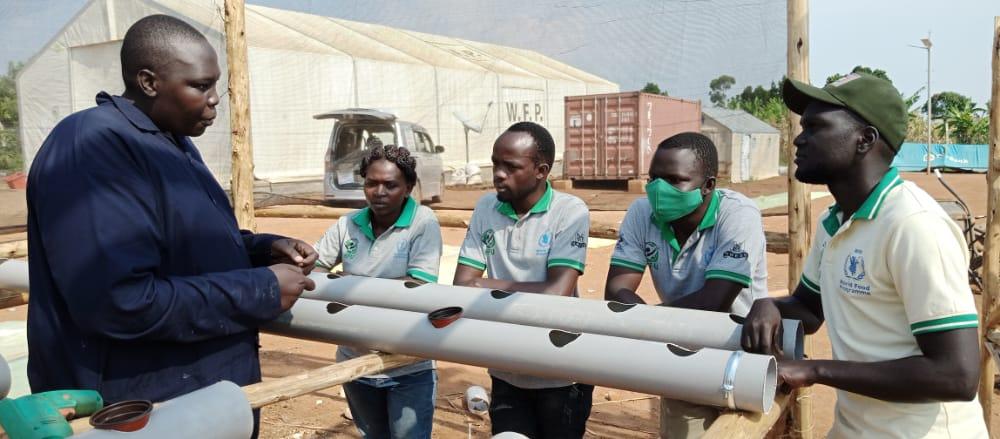Providing small-scale farmers with affordable, nutritious crops using hydroponics
Hydroponic Farms is a home-grown Ugandan climate smart urban farming social enterprise that primarily designs, manufactures and distributes hydroponic farms. Hydroponic Farms grew into a social enterprise and was formerly registered in May 2020. The company empowers mainly urban farmers to achieve predictable and highly nutritious yields for vegetables and produce their own animal feed at limited cost of input.
Why did you decide to build your business around hydroponic farming? What are the main advantages of hydroponic farming over conventional farming using soil?
I come from a humble background. I grew up in a family that had no access to food. At a young age, I vowed to start an initiative to help families like ours grow their own food. The dream came to pass in 2020 when I started hydroponic farms. I was mentored in Sweden and saw how people were benefiting a lot from hydroponics. Hydroponics is more advantageous. It uses no pesticides and soil. Hydroponics saves water as well, because we recycle and reuse the water in hydroponics. Lastly, in hydroponics plants grow faster and larger than in traditional farming.

How do you support both smallholder farmers and individual urban growers? Do these customers have different requirements?
Hydroponic farmers in Uganda have started to recognize its affordability and suitability for small-scale farming. We support smallholder farmers through hydroponic training and inputs. The majority are interested in food crops like spinach, carrots and cabbages. We organize them in groups and support them communally. They grow their hydroponic food crops for harvest and sale. We also provide for them a market for the produce on our website and locally. We also have smallholder farmers that practice animal fodder hydroponic farming and we support them with the inputs to grow their own fodder and feed their animals and birds.
The individual urban farmers have different demands. They may be commercial growers or hobby growers. We support them with training, inputs and consultations. We also do farm visits weekly.
Can you explain why you integrated Internet of Things (IoT) technology into your hydroponic systems and how this helps growers?
We needed the farms to be automated. Some clients were busy and have larger commercial farms. So, to support our clients better, we introduced automation through use of IoT. IoT helps us store the data in the cloud from our farms, as well as automate our farms through use of Arduino boards, relays and sensors. The introduction of IoT has allowed farmers to automate the hydroponic culture and easily control the gardens on their mobile phones using our mobile application and web application. And all this is in real time.

Has this technology helped you scale your business? How?
The existence of IoT has helped Hydroponic Farms Uganda scale. Through use of our technology we have been able to register patents and also sell our software and hardware to different farmers. This has added to our revenue and attracted funding, grants (Shareyourself grant and SDG Impact Accelerator) and prizes (European Union IoT Prize).
How does hydroponic farming increase climate resilience for communities in Uganda?
Our population is slowly embracing hydroponic farming. So far, hydroponic food production has stimulated economic development in Uganda by creating jobs, lowering production costs by reducing transportation needs and decreasing risk by increasing predictability in Uganda’s urban food supply chain. Our community of vibrant hydroponic local farmers has led to urban-rural linkages and understanding about how food is grown; it has shortened the food supply chain.
We now have all year-round food production without loss of yields due to climate change or weather-related events, and we have eliminated the need for large-scale use of pesticides and herbicides, which has provided a major new role for agrochemical industries by protecting crops, increasing productivity and maintaining the quality of the produce. This also saves other costs such as labour and fuel which in turn lowers the prices of agricultural commodities. This has created a Uganda that encourages sustainable urban life, promoting a state of good health for all those who choose to live in urban areas.
How do you measure the impact you create?
We have set up a set of indicators and identified key pillars that predict the climate resilience that we are keen to measure.
